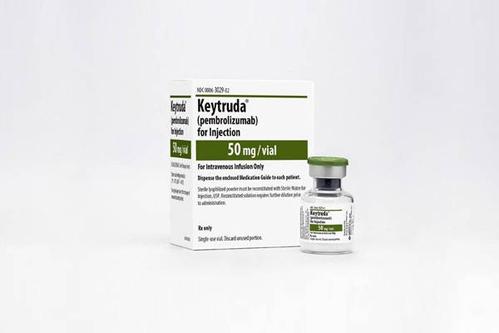fiercepharmaFebruary 21, 2019
Tag: Keytruda , Merck , immunotherapy
Merck & Co.’s immunotherapy Keytruda has been hitting its trial targets so often, it’s tempting to think it can't miss. But it can—and Tuesday’s data in liver cancer proves it.

In a pivotal study in patients with advanced hepatocellular cancer (HCC) who’d already been treated with another drug, Keytruda fell short of statistical significance on both its primary goals. It didn’t beat placebo at fending off cancer’s advance or at prolonging patients’ lives, though the numbers themselves leaned positive, Merck said. The reported results don't include response rates, because Keytruda didn’t prove superior, the company added.
The study, Keynote-240, was intended to confirm phase 2 results that backed up Keytruda’s accelerated FDA approval in HCC. That earlier trial showed that 17% of patients previously treated with Bayer’s Nexavar responded to Keytruda, and 89% of those responders were still benefiting from treatment six months later. Fifty-six percent responded for at least a year.
When Keytruda won that nod late last year, researchers noted that patients with advanced HCC have few options. That’s one reason why a 17% response rate was enough to persuade the FDA to award Keytruda its accelerated approval.
Whether these follow-up data will be enough for Keytruda to hang on to that approval is the question now, and the Tuesday announcement offers some hints about what comes next. For one thing, the company said it has shared the new data with the FDA "for discussion."
For another, Merck SVP Roy Baynes, head of global clinical development, said the new data line up alongside the previous study numbers. "[W]hile not statistically significant, the results for overall survival, progression-free survival and objective response rate are generally consistent with findings from the Phase 2 study, Keynote-224, which led to the accelerated approval," Baynes said.
If Keytruda does keep its HCC approval despite the phase 3 failure, it wouldn’t be the first time for a drug in its class of PD-1/L1 checkpoint inhibitors. Roche’s Tecentriq fell short in a phase 3 bladder cancer trial, but after some data-sharing and discussions between the company and FDA officials, the IO drug held onto its bladder cancer indication.
And if by some stretch Keytruda does lose HCC, it has more than a dozen others to work with. HCC was the drug’s 14th nod, and it racked up another just this week in melanoma. Last week, it put up data in kidney cancer that could make Keytruda a linchpin of the standard-of-care regimen in previously untreated patients, analysts said. The drug is in hundreds of other trials in a host of cancers and in combination with chemotherapy, its AstraZeneca-partnered PARP inhibitor Lynparza and more.
Keytruda isn’t Merck’s only contender in liver cancer, either. The New Jersey drugmaker struck a $5.8 billion deal with Eisai last year to get its hands on half of Lenvima, approved for inoperable HCC as well as differentiated thyroid cancer and advanced kidney cancer. The two companies are aiming for 11 more potential indications in combination with Keytruda in a variety of cancers.
Register as Visitor to CPhI China 2019!

-----------------------------------------------------------------------
Editor's Note:
To apply for becoming a contributor of En-CPhI.cn,
welcome to send your CV and sample works to us,
Email: Julia.Zhang@ubmsinoexpo.com.


Contact Us
Tel: (+86) 400 610 1188
WhatsApp/Telegram/Wechat: +86 13621645194
Follow Us:




 Pharma Sources Insight January 2025
Pharma Sources Insight January 2025


